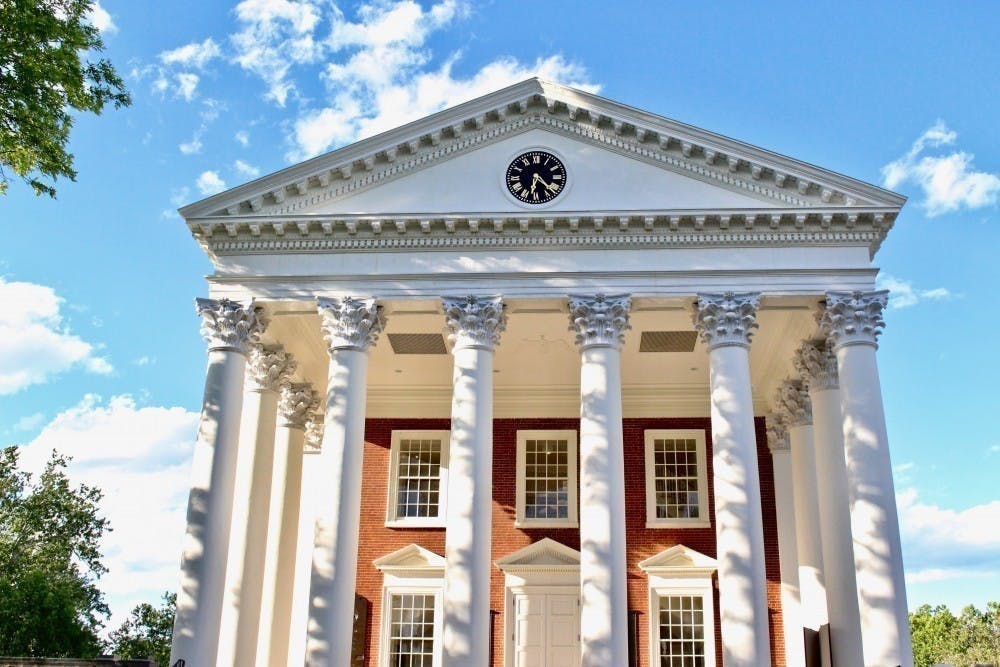Frankly, I’m disappointed in you guys. I thought college was supposed to be a place with radical ideas where we question authority in a dorm without AC drinking off-off-brand beer. However, as evidenced by the last few hot takes here, we are simply not thinking radically enough:
“Abolish legacy admissions”
“Abolish founders day”
“Get two-ply toilet paper in Clem 4”
“Abolish the traditional curriculum”
“Answer my texts, Emily, please she was just a friend, I swear”
This is the best we can do? Taking down statues isn’t enough. We need to abolish the University and start fresh. There are simply too many issues that are beyond reform:
- Names
No, I’m not talking about buildings being named after slave owners and eugenicists. Or a building literally being called “Cocke Hall” — I guess with a last name like that you have to become rich and buy buildings for people to take you seriously. I’m talking about the University of Virginia taking the name of a state named after the Virgin Queen Elizabeth. This legacy of virginity is perpetuated not just by our name but by cramming two-to-three first years into a room smaller than most prison cells, selling them lanyards to wear around their necks and telling them it’s cool to be a Stud Co representative or a snitch — sorry, a member of Honor.
Don’t get me wrong, U.Va. has been trying to help their students out. They added the E-school to make the rest of us look better and even started the Echols program so that all virgins could live in the same building. But, if the amount of people I’ve seen aggressively swiping right on every profile on their Tinder during class is any indication, these incremental reforms don’t cut it.
2. Diversity
The University remains a PWI — that’s Predominantly White Institution for the people who quickly click past every pastel infographic on Instagram. There’s nothing wrong with white people — except the ones that ask to re-do high fives because the first one wasn’t good enough — but when I get “spicy food” from Newcomb I want it to actually be spicy and not just have pepper on it or something.
Plus, meeting people from different backgrounds is hard when a certain group chooses to self segregate. You guys know who I’m talking about — the Greeks. No no, not people of Greek descent — people in Greek LIFE. They keep to their little groups, refusing to integrate. To tell you the truth, they make the REST of us feel excluded with their lingo, and I really don’t like how the University panders to them, letting them have entire houses and streets to themselves so they can have a “safe space.” Grow up, snowflakes.
3. Everything is competitive
Are you not particularly talented in any area but tell yourself you're a “people person” despite being afraid to tell the waiter that he got your order wrong? In most schools, you could quickly become a Business Major and spend your time day-drinking and banking on the nerd in your group project doing the work for you. Meanwhile, here at the University, you have to work hard for two years, be involved with orgs you claim to “have a passion for” — who on earth enjoys making excel spreadsheets — and then spend your last two years explaining to people that you aren’t a communications major. And that’s not even the worst one. Do you want to “make the world a better place” and be involved in government? Well, not only will you spend two years staying in and studying, you’ll get the privilege of paying MORE money to go into a career that makes LESS money.
4.Getting the classes you actually want
I came to college to LEARN, or at least that’s what I tell my parents when I’m at the “library” on a Friday night. I could put up with the weird names, obsession with slave owners, toxic greek life culture, horrible dining food, even the fact that being naked in front of all of your friends in the cold is considered a “tradition,” if I was receiving a quality education. Don’t get me wrong, the University is a true public Ivy — because they didn’t just make up that word — with some amazing professors and classes.
You just won't get to take them! Well, unless you get blessed with early SIS times every semester because Jim Ryan is your dad or something. For classes that require instructor consent, you will find yourself writing paragraphs on paragraphs, pretending to be passionate about something you know zilch about. It’s not like the whole point of taking a class is to learn new things! Plus, be prepared for SIS to crash because we really wanted to emphasize the public in public Ivy. It’s easier to break into the Capitol than it is to get a seat in Dracula.
As you can see, there’s just way too many things for admin to fix, even if you are getting paid eight figures and given a mansion to live in while doing so. What’s that? U.Va. isn’t special, and higher education in America is a predatory industry that doesn’t really care about students or athletes or education and remains inaccessible and unaffordable for working class Americans, POC and just about every marginalized group you can name? Whew, that sounds like a much harder problem. Maybe get one of the chumps who are paying 40k a semester for a degree in public policy to fix it?
Eshaan Sarup is the Humor editor for The Cavalier Daily. He can be reached at e.sarup@cavalierdaily.com







